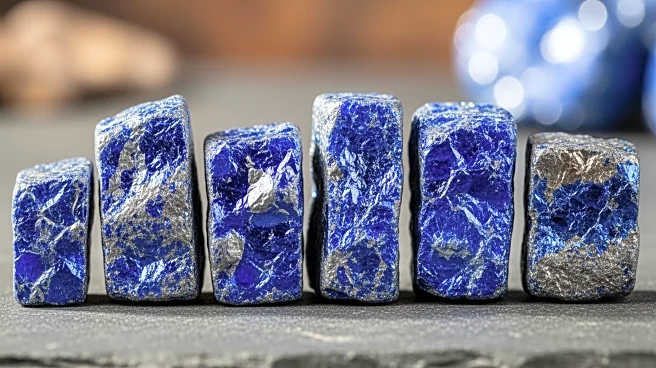What's Happening?
The Democratic Republic of Congo (DRC) has produced its first 1,000 tons of traceable artisanal cobalt, marking a significant step in cleaning up the supply chain. The state cobalt agency, Entreprise Générale du Cobalt (EGC), announced this achievement
at a ceremony in Kolwezi. The traceability model aims to align production with international environmental, social, and governance standards. The DRC holds about 72% of the world's cobalt reserves and supplies over 74% of global production, much of which comes from informal artisanal mines.
Why It's Important?
The introduction of traceable cobalt is crucial for ensuring ethical sourcing and improving the reputation of the DRC's cobalt industry. This move addresses concerns about child labor and unsafe practices in artisanal mining, which have been major issues in the supply chain. As global demand for cobalt rises, driven by the electric vehicle and energy storage sectors, traceability becomes increasingly important for manufacturers seeking ethically sourced materials. The initiative could lead to higher prices for certified cobalt and encourage more sustainable mining practices.
What's Next?
The EGC plans to expand its operations beyond the initial 1,000 tons, aiming to increase refining capacity and capture a larger share of the artisanal market. The DRC's implementation of export quotas and encouragement of local processing are expected to support cobalt prices and promote ethical sourcing. As demand for cobalt continues to grow, the DRC's efforts in traceability could set a precedent for other resource-rich countries facing similar challenges in their mining sectors.

















